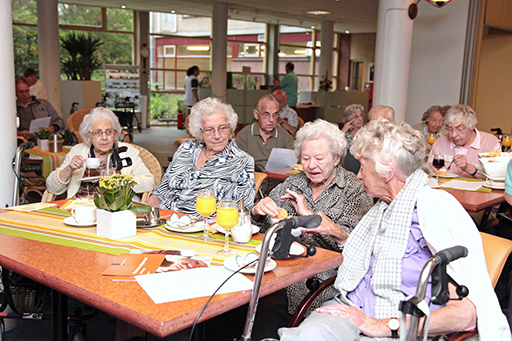Introducing relational care
Introduction
Much of the news about communities of care for older people is grim. For the sector: a soaring level of staff turnover – 25% – with at least 152,000 vacancies; 18% of care settings having to close in 2022; and budgets eroded by inflation (HfT and Care England, 2023). For staff: rushed and unable to give their best; low retention affecting the formation of settled relationships; often low pay; and a lack of recognition of their skills and commitment. Most importantly, too, for the older people affected by these issues: crisis transitions into unfamiliar care; a feeling of disempowerment; and loss of worth and purpose.
This free course is based on ground-breaking research (Gopinath et al., 2023a, b) that offers a way forward using ‘relational care’ – a developing approach to supporting older people that is gaining traction as part of a wider movement towards new attitudes, and a re-visioning of adult social care.
Relational care represents a natural progression from person-centred care, taking it to a new level and shifting the emphasis from the individual alone to the person as part of a network of supportive and mutual relationships. Research shows that relational care is more effective in improving the wellbeing of those living and working in care settings and enabling them to enjoy a much fuller life. In essence, it represents a move from a one-way flow of care towards mutuality in caring relationships whereby people are not solely ‘givers’ or ‘receivers’. It prioritises the creation of an environment that people can feel is truly their home, where they contribute as much as they can and wish to the lives of their peers and communities.
These networks, in turn, improve wellbeing and increase autonomy, providing more purpose and meaning in life for everyone concerned (Baylis, 2017; Woodward & Kartupelis, 2018; Kartupelis, 2021). You may well already be using aspects of relational care or particular models of care (e.g. Montessori, or models for managing confused behaviour) that embody relational care.
This course is designed to introduce residential and day care setting providers, managers and staff to the concept and headline benefits of relational care and what contributes to its practice. A toolkit, ‘Making every relationship matter’, developed from research (Larkin et al., 2023) and available as part of this course will give you the knowledge, motivation and confidence to apply what you have learnt about relational care in your own care settings.
During the course you will use case studies, vignettes and audio-video material developed through the research to bring alive the value and application of the toolkit. Unless specified otherwise, the generic term ‘care setting’ is used. Similarly, the term ‘resident’ is used to refer to all older people receiving any kind of personal care in any care setting.
This course can be studied at any time and at a pace to suit you. You do not need to complete it in one go. By enrolling on the course your progress will be tracked, and you can return to it at any point through the ‘In progress’ section in your OpenLearn profile.

